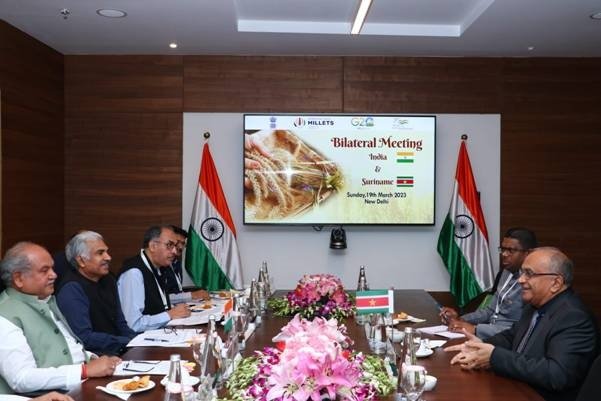Global cumulative production of fishmeal and fish oil remains down
China’s slow economic recovery impacting fishmeal and fish oil consumption
As for fish oil, the total cumulative output in the first 10 months of 2023 was 20 per cent down year on year. The supply shortage in Peru (due to both fewer landings and lower oil yields) was here again the main cause for such negative performance. Chile remained the only country that registered a positive change year on year thanks to improved catches and higher-than-average oil yields in the South of the country.
The above figures are based on a list of countries considered in the IFFO reports – Peru, Chile, Denmark, Norway, Iceland, UK, Ireland, Faroe Islands, USA, South Africa, Ivory Coast, Mauritius and Spain
In Peru, around 66 per cent of the second fishing season’s quota had been landed in the north centre of the country. The early start of the second fishing season in the North-Centre of Peru, which took place in October and is usually scheduled in November, explains larger catches of small pelagics than usual when we compare October 2023 with October 2022.
In the USA, the menhaden fishing season officially ended in November. The new fishing season will resume in May 2024.
China’s slow economic recovery impacting fishmeal and fish oil consumption.
China’s domestic production of fishmeal and fish oil in quarter IV 2023 might exceed that reported in quarter IV 2022. Despite this, local fishmeal producers are encountering difficulties in selling their products due to a poorer demand and the abundance of standard quality fishmeal. As a result, the inventory of domestic fishmeal appears higher than it was a year ago. Cumulative imports of fishmeal from January to November have declined by 9.4 per cent year on year, in line with the weaker domestic demand from both aqua- and piglet feed producers and the reduced Peruvian supply.
China’s 2023 fishmeal consumption in aquaculture is not expected to surpass that of 2022, although a rebound in the global supply of marine ingredients might open new scenarios. Similarly, the pig sector is grappling with subdued prices, hovering around a low point. The anticipated higher seasonal demand for the period November-February has yet to materialise. At this point, farmers are banking on improvements in the second half of 2024.
China’s slow economic recovery impacting fishmeal and



